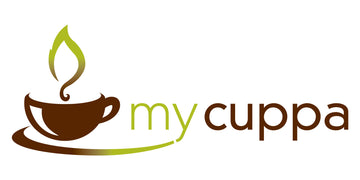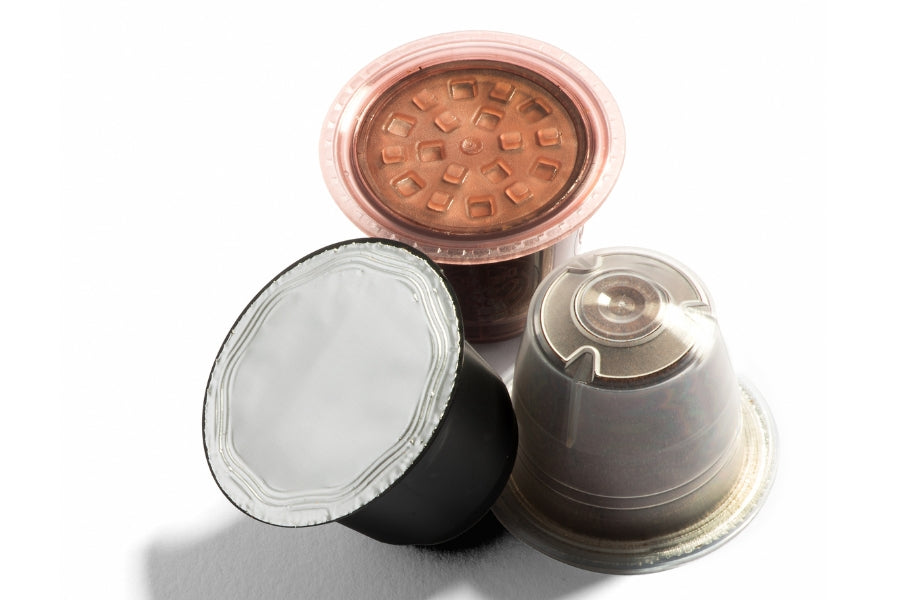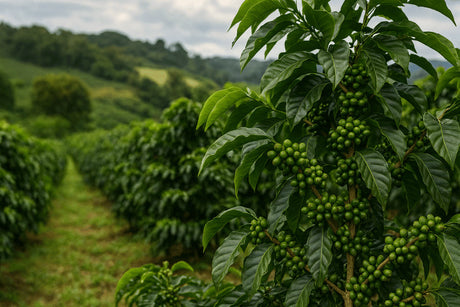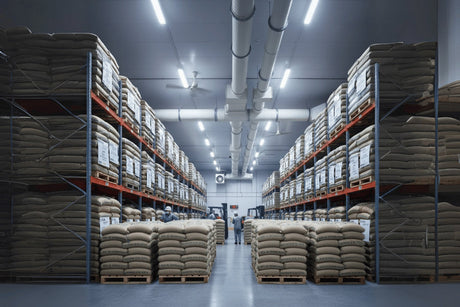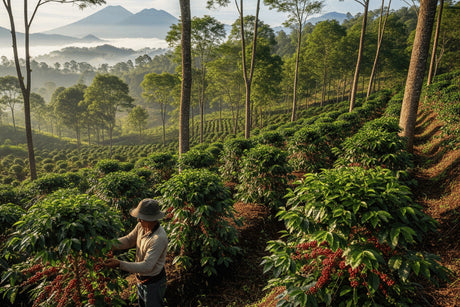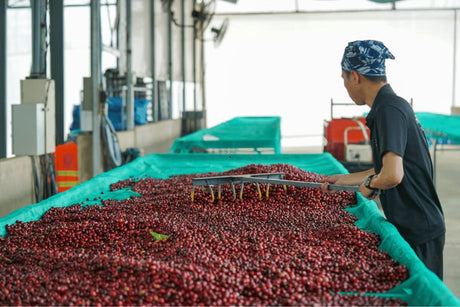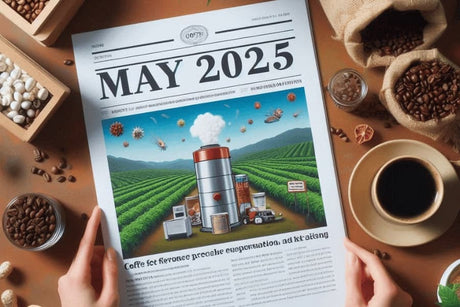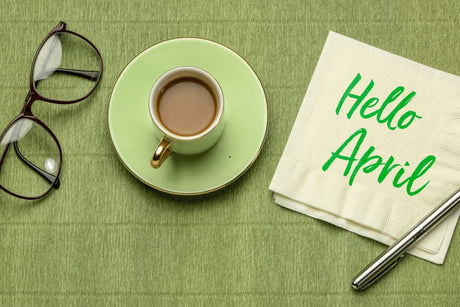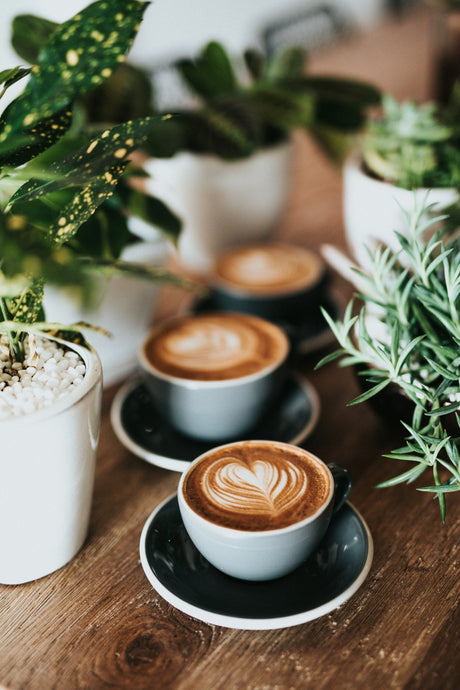mycuppa Jan 2016 Newsletter
Take 2 - new-generation Nespresso capsules.
After releasing our first generation Nespresso-compatible capsule in 2013, we took a break from that segment in 2015 to observe the evolution of the capsule market.
Our involvement with single-serve portion control coffee goes back five years via our market-leading ESE pods, so dealing with such low-dosage products provides us with interesting insights.
The 1st generation capsules provided some opportunities for improvements, and no matter how high the quality grade of the coffee used in the tablet, it was remarkably difficult to generate sufficient flavour without resorting to higher caffeine elements (which we understand the original inventor of the systems has also done).
We were also constrained by the wrapping technology at the time - having 3x capsules in a wrapper would never be an optimal solution for the end customers.
The key challenge with the capsule clone market (domestic Nespresso compatible) is that Nestle needs the appropriate material to create a full, hermetically sealed capsule (also why there has been such a landfill waste backlash).
Only Nestle has the packaging that deploys a food-grade plastic-lined aluminium product to ensure a basic barrier seal without needing a wrapper.
Unfortunately, many sellers in Australia now offer capsule clones promising hermetic seals from their plastic products. Still, the truth is that it's not possible.
These products are being sold with sufficient full disclosure regarding product lifecycles and certainly need more advice to prospective customers about the real and rapid degradation of the contents.
Those plastic capsules leach the essential volatile compounds via outflow, so the capsule is effectively stale when you use it.
The disappointing fact is that sellers, including many ranges available in supermarkets, only care about fast-moving products rather than quality and integrity.
The only current, reliable alternative is to wrap the capsule in a metalized foil and flush it with nitrogen gas to displace oxygen.
Our new 2nd generation capsules use the most advanced clone capsule product on the market - individually wrapped.
They are the best Nespresso-compatible capsules in Australia.
To fill the capsules, we leveraged our best coffee blend roasted a fraction darker to produce more intensity.
The capsules were converted locally by a specialized provider, and we offer them for sale in the mycuppa store here.
Yes, back in store

India Mysore Nuggets
In November 2015, we ran the India Mysore Nuggets Extra Bold on pre-order to limit the number of kilos sold from our small holding.
My thoughts are that Nuggets were the best-tasting espresso coffee in years.
It was nothing short of amazing, and those lucky customers who first tried it were quick on the phone to secure more.
Our next small shipment was due to arrive in the 2nd week of December; however, the ship was delayed in transit, and the fresh crop arrived in our warehouse late last week, on 7th January 2016.
We only have a little of this wonderful coffee - it's likely to run out by March.
If you love black coffee, Mysore Nuggets must be your go-to bean.
A delightful balance of acidity, a soft sweetness of raisins, a silky smooth body, and finishes with a stewed currant flavour.
Just superb.
India MysoreNuggets Extra Bold
Australian coffee drinkers addicted to textured milk
A funny thing happened on my holidays - I discovered something that had been hiding under my nose for ages.
No, it wasn't some weird, relaxed state of mind or the creation of a new coffee innovation but an observation that was a bit of a shock.
It's about milk, and the critically important role milk plays in the psyche of the Australian coffee drinker.
To read my story, please click on the following link: Addicted to Milk.
Brazil bouncing back
The world's largest producer by a clear margin, 12 months ago, Brazil suffered one of its worst droughts in history.
This affected the growing and flowering seasons, resulting in lower-than-forecast yields.
The impact was a price spike as fears of a global coffee shortage forced demand to exceed supply on the futures exchanges.
In the cup, we thought Brazils were a bit milder during 2015, and subsequently, we went a fair bit shorter on Brazils than we had in the past, requiring us to go longer on Colombians to make up the shortfall.
We were extremely fortunate to pick up the Cambara Natural microlot.
There was a Brazil that had plenty of cup flavour and complexity.
Last week, we received a new crop of fresh Brazil from a specialty bourbon supplier.
This coffee is a beautifully prepared semi-washed natural with a very small screen size - it's super sweet, chocolate and nut with sweet apricots and stone fruits running through a well-defined and balanced body.
We are using this wonderful new Brazil in our popular Super Brazil blend - available here.
El Salvador's difficulties prevail.
El Salvador coffee has been a staple in our portfolio since late 2007 when we picked up our first lot of the Himalaya branded bourbon, and it has been high on my list of "must haves" ever since.
The coffees from El Salvador have a defined sweetness that sets them apart from other Central American origins.
We love how El Salvador coffees work with espresso, particularly milk-based espresso.
The situation in El Salvador has been deteriorating for a long time. Civil war, gangs terrorizing governments and authorities and in the last couple of crop seasons, the Roya (Coffee Leaf Rust) has affected El Salvador farms with greater impact than other areas of Central America.
Part of this has been due to a lack of infrastructure and capital from an economy that has been on its knees for too long.
Over the last 18 months, we have gone short on El Salvador coffees.
This decision was challenging, as premium El Salvador coffees were important components in most of our specialty-grade blends.
However, the actions directly respond to limited supply, escalated prices and, to some degree, average cup qualities.
Following the Roya epidemic, the current El Nino weather has caused a crippling drought in the Eastern area of the coffee plantations.
There needs to be more motivation for young Salvadorans to pursue farming as a career.
This is mainly due to the low wage of just 4 USD per day earned by harvest pickers.
Thus, farmers must offer free housing, energy, and food during harvest to attract labour.
We don't see the situation improving any time soon, and the coffee in El Salvador is likely in a state of crisis - which is a real shame.
The country knows and accepts a problem, and they are doing their best to focus on specialty-grade coffees to avoid the commodity trap.

Ethiopians, what the?
Suppose you are a fan of our Ethiopians.
In that case, you may have noticed or even wondered why there might have been a few changes on some of your orders for Sidamo, Yirgacheffe and Harrar coffees - depending upon when you place the order.
We have several holdings for each of these varietals, and I have been rotating through these lots on an alternate basis - e.g. open a 60kg bag of Sidamo Guji Natural and roast that bean until the bag is empty.
The next bag to open will be the Sidamo Bensa washed, which has different attributes and characteristics from the Guji natural.
Similarly, we do this with the various Yirgacheffe coffees from Aramo, Aricha, Dumeresco, Edido, Kochere, etc. 2015; we also ran a Limu natural alongside our ever-popular Limu washed.
Please do not be alarmed- these are all Grade 1 coffees of the highest available from the import list arriving in Australia.
Washed coffees have a darker and more consistent bean appearance.
They tend to have a higher lemon and honey component in the cup and are cleaner in cup definition.
Naturals are more floral, giving off incredible aromatics when ground, have a mottled appearance (mix of light-coloured and darker-coloured roasted beans), create more body and tend to be fruitier (particularly berry notes) than the washed varietals.
From the team at mycuppa.com.au, we wish you a happy New Year.
